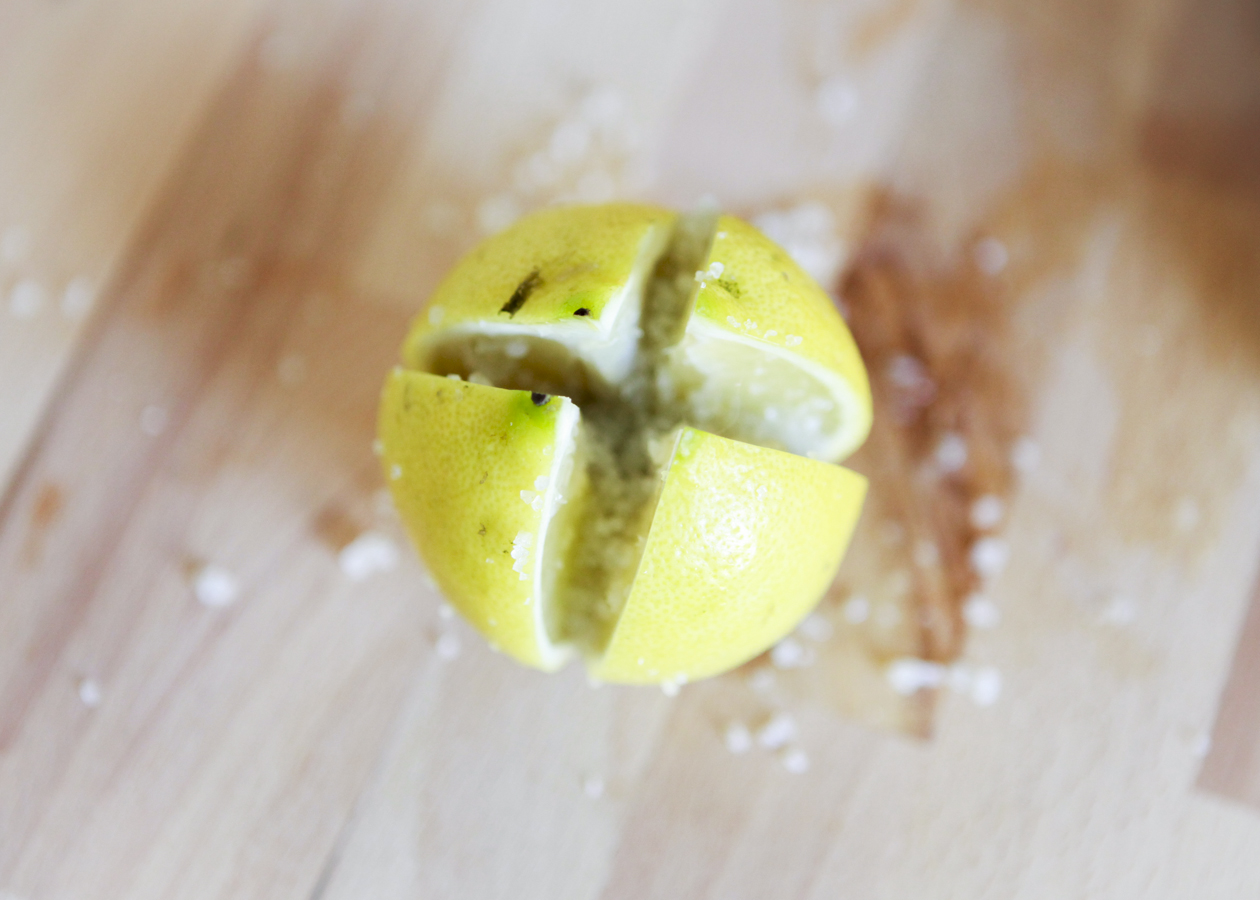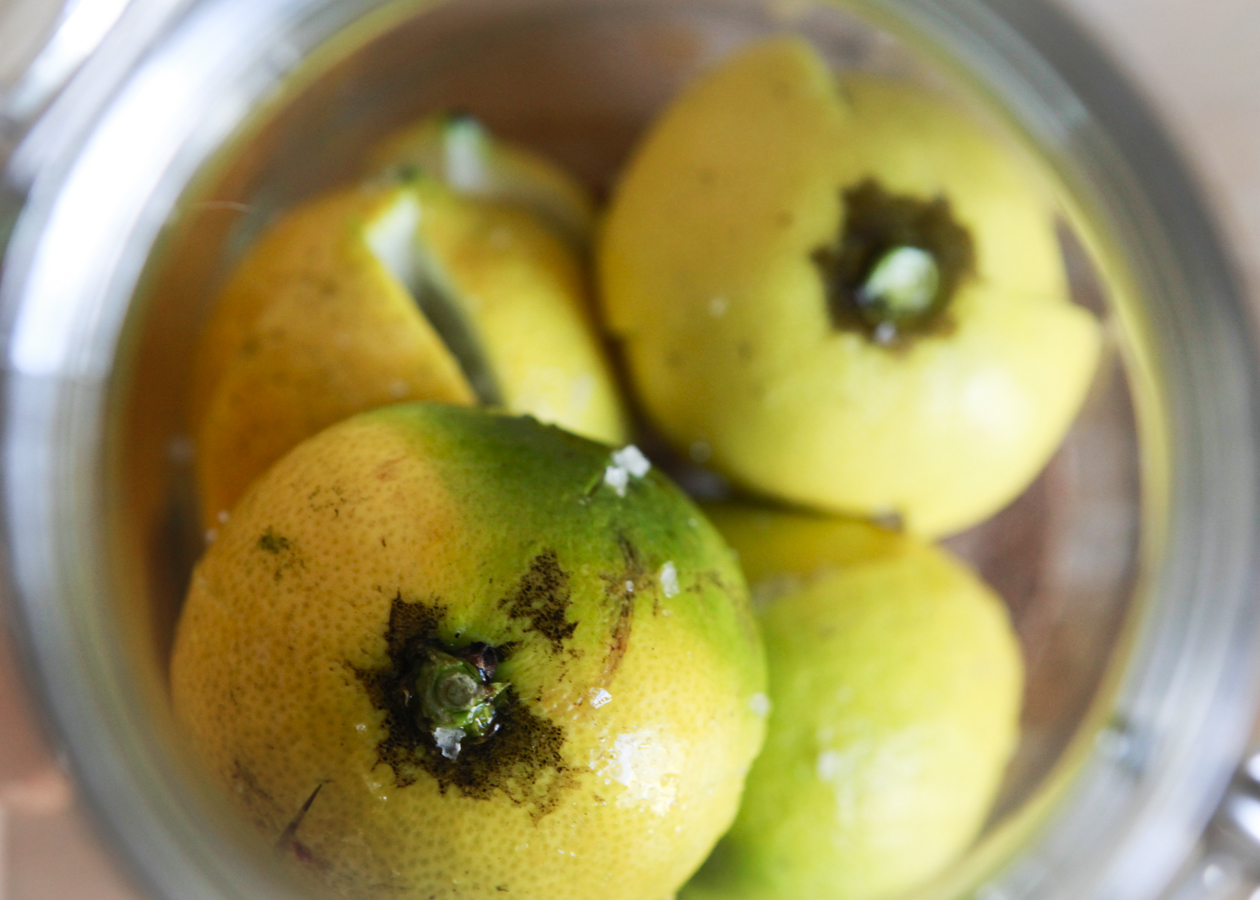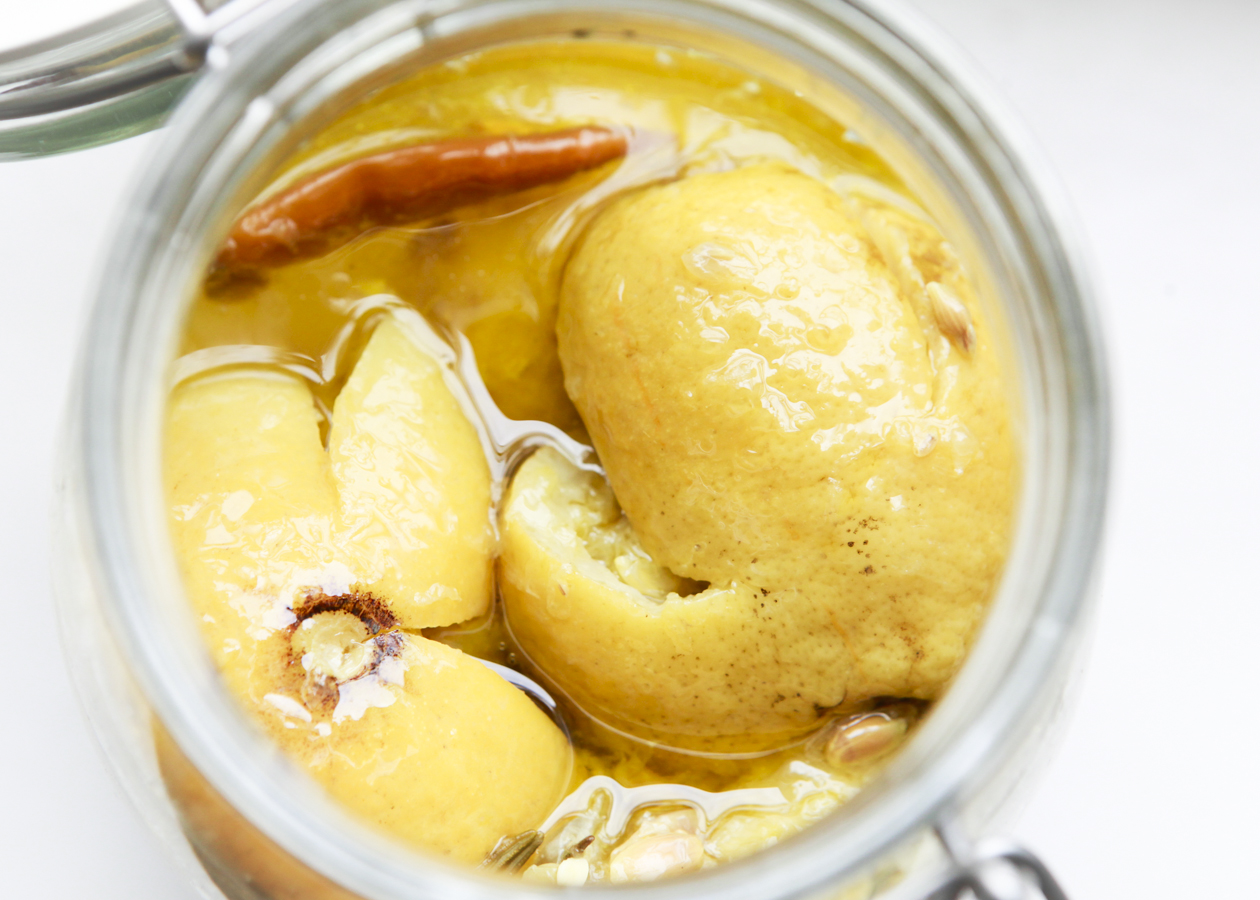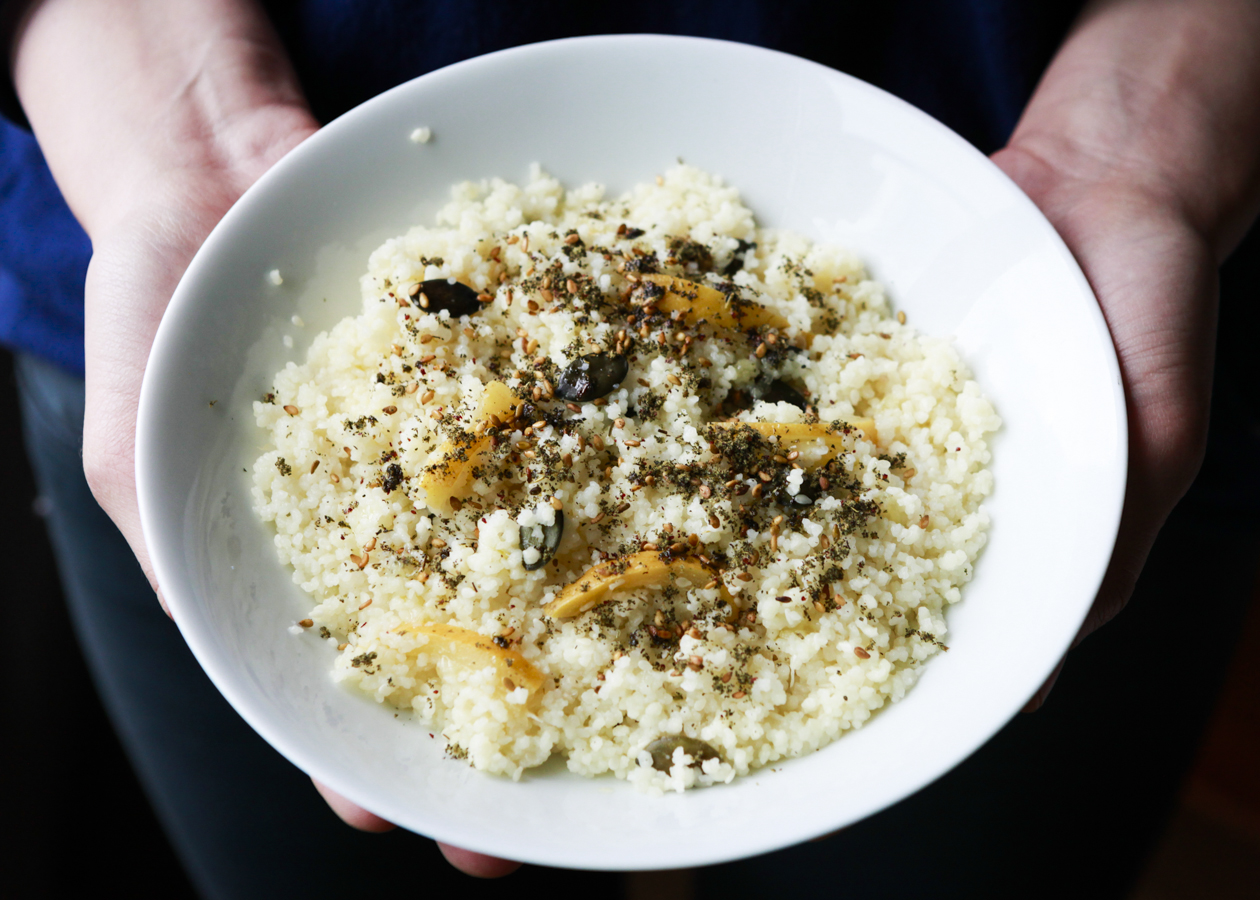It’s nearly March, which means (from a glass-half-full vantage) that it’s nearly Spring or (from a glass-half-empty one) that citrus season is nearing its end and that it’s nigh time for us in the Northern Hemisphere to bid farewell to (relatively) locally-grown lemons. Sigh.
You see, as much as I try to keep my diet in harmony with my region’s seasonal rhythms, I tend to make excuses for lemon. Sweet, sunshine-hued lemon, the only fruit that I consume daily, throughout the day in fact, starting my morning with a limonene concentrate and proceeding to sprinkle its juice on grains and greens, roast slice on top of chicken or fish, drop wedge in glass of water or cup of herbal tea. Come Winter or, for those experiencing the isn’t-it-over-yet blues, Citrus Good Times, I fill my market bag with the finest lemons that this region has to offer. And when the winds have shifted toward Spring, my hands can’t help but reach for those mesh-bags, y’all know the ones, brightly hued and filled with 10 not-always-so-fine-but-fine-enough looking lemons. And in Summer, seasonal-living-be-damned, I make lemonade.
I can’t quit you, lemon. And to speak, pardon my French, franc-ly, I don’t want to. But this year, I’m going to try to reserve the use of the fresh version of you and make more use of the preserved one.
Yep, that’s right preserves, or the results of preserving the bounty of one season for the next. Like curing ham in the fall, or making sauerkraut in the winter, or eating as many strawberries as humanly possible in June. The lemon is no stranger to the process of preserving and, like many other plant-based lacto-ferments, all that’s needed is some salt, a vessel and time.
Call them pickled or lacto-fermented or salt-brined or just plain ol’ preserved, these lemons will last far beyond this last stretch of Wint…, ahem, Citrus Good Times. And while they won’t yield even remotely…remotely!… palatable results for something like, say, lemonade, the combination of salt and time mutes the bitterness of pith and peel, meaning that preserved lemons are lemons you can eat whole.
The classic use for these lemons is in chicken tagine, but I find their uniquely-umami quality lends brightness and complexity to something as simple as a plate of 10-minute couscous. I’ve added slices to a pan of sizzling brussel sprouts, stuffed them in a roasting chicken, simmered them in a pot of spelt-berries all with equally lip-smacking results.
Let the Citrus Good Times roll!
Adapted from Ottolenghi's "Jerusalem"
Ingredients
- 6 organic lemons (important! as you'll be consuming the peel); whole
- 6 tablespoons of course Celtic sea salt
- 6 lemons; juiced
- 1 sprig rosemary
- 1 sprig thyme
- few dried hot peppers (optional, but delicious for us spice-lovers)
Directions
- Cut an "X" in each lemon, cutting deeply enough so that it folds open, but lightly enough so that it remains whole. Rub 1 tablespoon of salt into the inside of each lemon. Place lemons into a sealable glass vessel, pressing down on them as you go. The lemons should fill the jar (if your jar is too big or too small, add/subtract lemons accordingly). Seal well and wait 1 week, storing someplace cool and dry.
- Your lemons will have shrunk a bit by now and there will be some space at the top of your jar. No big deal! Add the juice of 6 lemons (or more, depending -- the goal is to cover the lemons with juice) and herbs and peppers. Add a pour of olive oil on top of the lemon juice. This layer of fat will protect your lemons from developing molds. Seal well and wait 3 weeks, storing in that cool and dry place.
After you've opened your jar, store in the refrigerator.




I’ve never thought to preserve my own lemons before.. and after seeing this post it is definitely something I must do. Thanks for the inspiration!
Merci Thalia! Butter & brioche are actually two of my favorite foods ;-p Keep me posted with your preserved lemon findings! <3